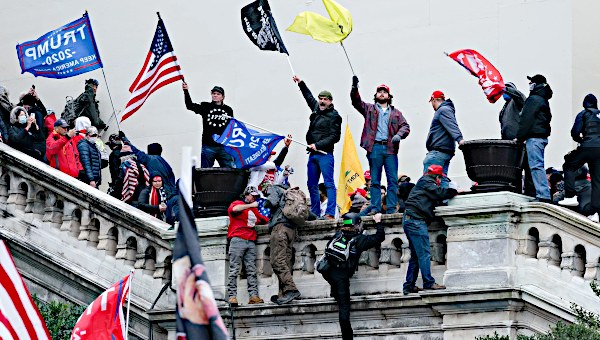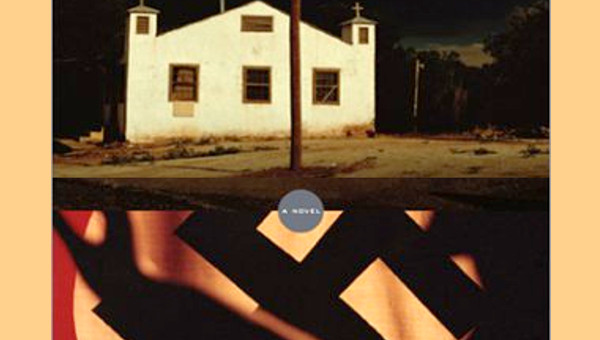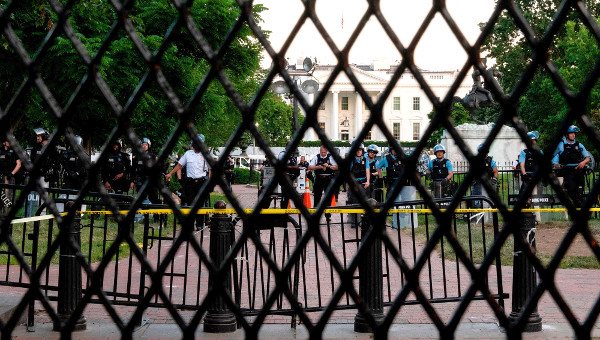Poisoning the American Mind: Student Protests in the Age of the New McCarthyism
We live in an age of increased disasters and encroaching fascism. This is a historical moment marked by a systemic attempt by an emerging authoritarianism to disable language and dissent of any substantive meaning, remove actions from the grammar of moral witnessing, and disassociate power from institutional justice. As all levels of society are hollowed out, notions of democratic community, the social contract, and compassion give way to a politics in which all matters of responsibility are individualized, privatized, and removed from broader systemic considerations. The habits of oligarchy are animated by fear and reproduced through relentless attacks on human possibilities, while “the disorder of real history is replaced by the orderliness of pseudo-history.”1
In a time of widespread suffering and unrest, higher education is feared for its critical functions, and students are expected to be silent, unresponsive to wider social issues, and ignore the relationship between the dynamics of power, marginality, and knowledge. Amid the expansion of the military-industrial complex and the carceral state, faculty and students are expected to look away or inward, unresponsive to the language of imagined futures.
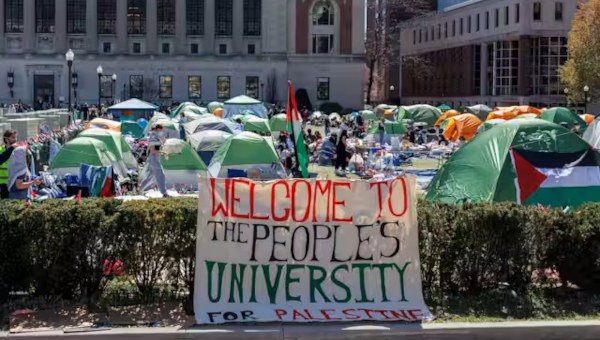
Frontal Attack on Free Speech and Academic Freedom
This process of depoliticization is intensified by a frontal attack on dissent, free speech, academic freedom, and institutions that support and nurture these crucial democratic rights and practices. Increasingly, higher education, in particular, under the influence of right-wing billionaires, authoritarian politicians, and cravenly boards of trustees is attacked for its critical functions, reduced to morally dead zones of the imagination and a mind-numbing conformity. Disdained as a public good whose purpose should be to educate young people to be informed and critical citizens, higher education is under pressure by far-right members of the GOP to renounce its responsibility to teach students to question, challenge, and think against the grain. One model for this regressive form of education is on display in Florida where Gov. Ron DeSantis has transformed New College, a once progressive college, into a citadel for anti-woke ideology and pedagogy – cleansed of classes where faculty and students can think critically, test their opinions, and realize themselves as engaged citizens.
No longer considered a public good where ideas and important social issues are nurtured, debated, and interrogated, institutions of higher education are being transformed into indoctrination centers where critical ideas and empowering pedagogies are held in contempt, transformed into apparatuses of censorship and hopelessness. Derided as a haven for critically informed social criticism, the far-right wants to reduce teaching and learning to what might be called cloning pedagogies, designed to clone culture, knowledge, ideas, and extremist world views.
Even worse, higher education is increasingly being attacked by the far-right for its liberal claim of equality and a common good. As an institution that aligns with a notion of “citizenship… equated with human dignity [and] equality on multiple fronts,” it has garnered the wrath of fascists, for whom hostility to universal citizenship is a central element of its mobilizing passions.2 This hatred of equality reinforced by the selective definition of who counts as an American now feeds both the attack on higher education and an increasingly vicious racist politics. As Eddie S. Claude notes, the fantasy of a “lily-white America” and the call to banish Black and brown people “from the nation’s moral conscience” create landscapes of illusion, enable white supremacy, while furthering racist violence and the logic of exclusion and annihilation.3 The far-right views thinking as dangerous, as is the notion that education is central to politics and must be defined through its claims on democracy and its role in a time of tyranny.
Moral restrictions seem obsolete as another colonial war rages in Gaza, during which thousands of Palestinians are killed, while attempts to criticize what various international organizations label as war crimes are summarily dismissed as antisemitism. This refusal to acknowledge the violence being waged against Palestinians has morphed into a war against critical journalists, cultural workers, and increasingly, higher education, now viewed by the far-right as a citadel of pernicious socialist thought. Under such circumstances, those who react to the suffering of others are subject to the dehumanizing and morally cannibalistic, verbal orgies of hatred, and more and more state violence. They are also at risk of a society in which civic death leads state violence, domestic terrorism, and a politics of disposability.4
In this historical moment, attacks on higher education make clear that struggling for freedom, equality, and justice comes with great risks. Such attacks give credence to an emerging fascist politics, both in the U.S. and abroad, that mark students who question settler colonial dispossession and state violence as objects of disparagement and potential violence by a racist-criminogenic state. Displays of civic courage now qualify students as objects of critique, exclusion, and in some cases, arrests. In the current repressive climate, this points to not only the egregious act of censorship but also to the death of the university as a public good and civic institution, regardless of its flawed notions of equality and civic knowledge.
The New McCarthyism
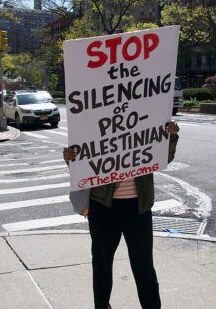
For Trump and his Vichy-like enablers, higher education is portrayed as a laboratory of left-wing ideologies whose ultimate purpose is “to destroy family, community, and national unity.”5 The resulting repressive policies represent the return of what Ellen Schrecker has called “the new McCarthyism,” which uses the smear of communism to attack critical education, teacher autonomy, and “real-world issues of race, gender, and social inequality.”6 She writes:
“The current [McCarthyite] campaign to limit what can be taught in high school and college classrooms is clearly designed to divert angry voters from the deeper structural problems that cloud their own personal futures. Yet it is also a new chapter in the decades-long campaign to roll back the changes that have brought the real world into those classrooms. In one state after another, reactionary and opportunistic politicians are joining that broader campaign to overturn the 1960s’ democratization of American life. By attacking the CRT bogeyman and demonizing contemporary academic culture and the critical perspectives that it can produce, the current limitations on what can be taught endanger teachers at every level, while the know-nothingism these measures encourage endangers us all.”7
The right’s attack on universities as citadels of leftist ideology dates back further than the purge of academics by the rabid anti-communists under Senator Joe McCarthy in the 1950s. Authoritarian governments in the 1930s performed a similar task in order to control universities. As Professor Ruth Ben-Ghiat writes:
“From the fascist years in Europe…right-wing leaders have accused universities of being incubators of left-wing ideologies and sought to mold them in the image of their own propaganda, policy, and policing aims. … Given the virulence the Nazis showed in silencing their critics in and out of the academy after Hitler took power in 1933, it is remarkable that this talking-point has retained traction for the right. It has done so thanks, largely, to the military juntas of the cold war era, which gave new life to fascism’s battles against the left.”8
More recently, McCarthyite tactics became rampant during George W. Bush’s presidency. This was particularly evident when Vice President Cheney claimed that critics of the administration’s Iraq policy “abetted terrorists.”9 Simultaneously, the Bush-era witnessed the emergence of McCarthyite institutions like Campus Watch, the David Project, Students for Academic Freedom, and other groups designed to police Middle East Studies and the liberal arts in general for any vestige of dissent against US domestic and foreign policies. Discoverthenetwork.org and other extremist organizations listed the names of professors considered un-American, similar to how ACTA listed the names of alleged unpatriotic professors after the 9/11 attacks.10
In an age dominated by feral social media platforms, a malignant form of censorship has emerged in even more virulent forms. For example, this is evident in the work of organizations such as StopAntisemitism, which engages in online vigilantism, doxing critics of Israel’s war on Gaza by “posting personal information online to encourage harassment – thereby chilling debate.”11 Not only are such critics named, shamed, and harassed, but many of them are expelled from college and often terminated from their jobs.
At present, a more dangerous form of McCarthyism has returned with a vengeance. This authoritarian turn in higher education has been accelerated by the increasing suppression of dissent by critics of Israel’s war in Gaza. Against Israel’s historically based claim of ontological innocence and perpetual victimhood, a new generation of critics argue, as Pankaj Mishra makes clear, that “oppression does not improve moral character.”12 Israel can no longer absolve its crimes by drawing upon its own tortured unfathomable history of repression and genocide. Federic Lordon goes further and argues that Israel’s brutal war of revenge on Gaza and its call to prevent a Palestinian state represent a form of “moral suicide.” He adds: “Never before has there been such a colossal squandering of symbolic capital that was thought to be unassailable, which had been built up in the wake of the Holocaust.”13
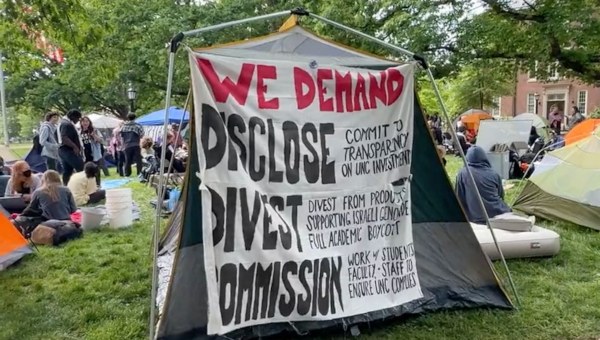
Netanyahu’s war on Gaza has intensified demonstrations on university campuses protesting Israel’s brutal violence against Palestinians. In response, the mainstream media and a number of pundits, with the blessing of pro-Israeli interests, has weaponized antisemitism, a label which has been reduced to any critique of Israel’s military conduct in Gaza or the West Bank. As William I. Robinson observes, one consequence of this pernicious criticism by the far-right is that “academic freedom and free speech are under an all-out attack on university campuses in the United States, not just from college administrations and pro-Israeli groups, but also from the highest levels of the Israeli state.”14
Student activists who criticize Israel are facing harassment, monitoring, expulsion, public shaming, and, in some cases, mass arrest for disruptions, evidenced by recent events at Columbia and Yale University, and several other universities.15 The protester’s call for colleges and universities to divest from corporations that profit from Israel’s war on Gaza along with their demand for “a complete ceasefire in Gaza” are buried in the blanket charge of antisemitism and the force of police violence.16 These arrests serve as another indication of the collaboration between certain Ivy League colleges and the far-right in the assault on student voices.17 Ari Paul observes that mainstream news has generally delighted in the crackdown, making clear “that campus safe spaces where speech is banned to protect the feelings of listeners are good, depending on the issue.”18 This is not to suggest that attacks on Jewish and students supporting Palestinian rights should be overlooked, but the real objective of the war being waged on elite universities poses a far greater threat than generalized and undebated charges of antisemitism. The inquisition at work in the house committee hearings investigating campus antisemitism is heavily inundated with political theater displayed by Elise Stefanik and her GOP colleagues. What is obvious in this show trial, as David Bell notes, is that they “do not have any real interest in solving campus problems. Their goal is to expose liberal elites as corrupt, dangerous, and anti-American.”19 The real objective of these hearings is to weaponize protests against the war in Gaza as components of a larger strategy aimed at exercising a defining role in the control of higher education. Robert Kuttner rightly notes in The American Prospect that this McCarthyite assault is part of a broader effort “to suppress fundamental freedoms of expression.”20
While the issue of campus antisemitism warrants discussion and debate, it is not within the purview of congresswoman Elise Stefanik. Nor is any serious discussion of widespread Islamophobia and the squelching of dissent by various campus groups supporting Palestinian rights. By leading the charge in Congressional hearings on antisemitism on college campuses, Stefanik adopts a flame-throwing confrontational approach aimed at dictating “the academic mission of a university,” prescribing disciplinary measures against professors and formulating guidelines “for acceptable campus speech.”21 The irony and hypocrisy here are hard to overlook given Stefanik’s “Puritan superego,” belligerent stance, and self-assured role as an opponent of campus antisemitism.22 This is especially noteworthy in light of her denial of elections results, characterization of individuals who attacked the Capitol as “January 6 hostages,” and her impassioned and staunch defense of Trump, who associates with prominent antisemites such as Kanye West and Nick Fuentes.23
The hypocrisy at work in criticism by far-right politicians is not limited to Stefanik. Senator Josh Hawley, Tom Cotton and other MAGA supporters of the insurrectionists who stormed the Capitol on January 6 have called for President Biden, whose election they refused to accept, to use the National Guard to arrest students on college campuses. For the MAGA group, violence waged by insurrections is legitimate, but students protesting against the massacre of Palestinians represent a threat to the state. On full display here is the irony of warmongers calling for violence against students who are calling for “the American government to stop sending military aid to Israel” and “for universities to stop investing in weapons manufacturers…who profit from Israel’s invasion of Gaza.”24 Hypocrisy in the service of violence is perfectly aligned with Israeli Prime Minister Benjamin Netanyahu’s characterization of student protesters on American university campuses as “antisemitic mobs” that must be stopped.25 Senator Bernie Sanders aptly criticized Netanyahu’s derogatory remarks as a ploy to use antisemitism “to distract us from the immoral and illegal war policies of your extremist and racist government.”26 He further adds:
“No, Mr. Netanyahu. It is not antisemitic or pro-Hamas to point out that in a little over six months, your extremist government has killed 34,000 Palestinians and wounded more than 77,000 – 70% of whom are women and children. It is not antisemitic to point out that your bombing has completely destroyed more than 221,000 housing units in Gaza, leaving more than one million people homeless – almost half the population.”27
Of course, hypocrisy is important to point out, but what really is at issue here is a political party and its far-right media apparatchiks who believe in using state force and the exercise of violence against their own people in order to shut down free speech. Yes, this is a form of domestic terrorism, and it is a fundamental element of fascist regimes. Campus protests are not merely seen as unwelcome disruptions but are criminalized by far-right university administrators and politicians.
Compounding these crude attacks on students protesting against the war on Gaza and the corporations that provide them with military weapons is the aggressive involvement of pro-Israel groups, some with the backing of the Israel state, in a broad campaign to shame and publicly disclose information about pro-Palestinian protesters, including students and faculty. Commenting on the repressive nature of this intervention by the Israeli state, Robinson states that the Israeli government has initiated what appears to be a wide-ranging covert campaign and action plan “to harass and intimidate students, faculty, and administrators into silence.”28 He elaborates on some of the chilling specifics of the plan:
“The plan aims at ‘inflicting economic and employment consequences on antisemitic [read: pro-Palestinian/anti-genocide] students and compelling universities to distance them from their campuses.’ The plan specifies that actions taken ‘should not have the signature of the State of Israel on it.’… It calls for ‘personal, economic, and employment repercussions for the distributors of antisemitism.’ According to the plan, the inter-ministerial task force will carry out ‘naming and shaming’ by ‘publicizing the names of those generating antisemitism on campuses – both students and faculty and impacting the employment of those identified as the perpetrators of antisemitism.’ Those targeted ‘will struggle to find employment in the U.S. and will pay a significant economic price for their conduct.’”29
Within this frigid climate of censorship, doxing, and punishment, faculty are being fired and students are being intimidated, harassed, and silenced. One egregious example took place when the University of Southern California’s campus canceled a valedictory commencement address by Asna Tabassum, a Muslim student – more than likely because of her expressed solidarity with the Palestinian people.30 In another instance, which has become all too familiar, some “New York University students were hauled in for disciplinary hearings after staging a reading of poetry by the Palestinian author Refaat Alareer,” who was killed in an Israeli airstrike.31 After students erected tents on the campus of Columbia University to protest the slaughter of Palestinians taking place in Gaza, the university president, Nemat Shafik, called in the city’s Police Department to remove them. Over a hundred students were arrested, all of them were suspended, their student IDs were deactivated, and they were evicted from their dorms.32 Such actions are reminiscent of the protests and arrests of over one thousand students that took place at Columbia University in 1968. It is worth noting, as Judd Legum states, “In 2018, on the 50th anniversary of the 1968 arrests, then-Columbia President – and noted First Amendment scholar – Lee Bollinger said the decision to call in the NYPD in 1968 was ‘a serious breach of the ethos of the university’.”33 Clearly, this is a lesson that President Shafik has chosen to ignore and in doing so is complicit in supporting this new wave of McCarthyism and its intensifying attacks on free speech taking place on more and more college campuses.
Her moral vacuity in calling the police to arrest students – who should be celebrated for their courage not punished – is astonishing given her comment that she has initiated “this extraordinary step because these are extraordinary circumstances.”34 What is extraordinary is that students are protesting the fact that over 34,000 Palestinians are dead, including more than 14,000 children, and that 80 percent of the population in Gaza are homeless, many of whom are starving in the midst of an intentionally imposed famine.
What is extraordinary is that students are opposing Columbia University’s investment and ties with corporations that profit from Israel’s war on Gaza. What is extraordinary is that students are calling for an end to obscene and morally reprehensible acts of violence, such as Israel‘s bombing of Rafah – ”where more than half of Gaza’s population of 2.3 million has sought refuge from fighting elsewhere.”35 Such attacks have resulted in the indiscriminate killing of women and children who have no place to escape.
What is extraordinary is that students are trying to stop an Israeli military attack on Gaza in which war crimes are being committed in violation of international law, as evidenced by the fact that over 300 bodies have been discovered in “a series of mass graves near Nasser Hospital in southern Gaza… The dead include men, women, and children… Some were discovered handcuffed, indicating that victims were killed in mass summary executions.”36
What Shafik willfully fails to acknowledge is that the real crime is not students demonstrating against the war and asserting their sense of moral agency – but the scale of human suffering in Gaza to which they are opposed. As an educator, Shafik is shamefully blind to the fact that Israel has not only destroyed or damaged all twelve universities in Gaza but has engaged in a “wholesale destruction” of Gaza’s educational system, committing what UN experts have labeled as scholasticide.37 In all of these matters, Shafik displays an astonishing degree of moral weightlessness, rooted in an appalling mix of ignorance and political irresponsibility.
While genuine antisemitism exists, it is now being used and maligned by the far-right – known for its own embrace of antisemitism – to engage in targeted harassment and shut down all criticism of the violence waged in Gaza against the Palestinian people, especially women and children. In this context, all criticism of Israel is being branded as antisemitic. This reflects more than a blind commitment to the Israeli state under a far-right leadership; it covers up an institutional machinery of state repression while reproducing a central tenet of authoritarianism, which is to silence those minds that dare to criticize its totalitarian ideology, policies, and anti-democratic tendencies. It is worth repeating that this far-right call for an “ecstasy of obedience” increasingly uses the charge of antisemitism on university campuses as a wedge issue to attack colleges and universities, which they claim are too liberal. It is worth noting that while the Biden white house condemned antisemitic incidents taking place at Columbia University, student journalists at the school stated that many of the incidents took place “on the fringe of campus, not involving students.”38
What is often forgotten by critics of the new McCarthyism is that this upgraded attack on higher education is worse than anything that took place in the 1950s. Ellen Schrecker, one of the great historians of McCarthyism, has written that the current assaults on higher education are “worse than McCarthyism.” She is worth quoting at length:
“It’s worse than McCarthyism. The red scare of the 1950s marginalized dissent and chilled the nation’s campuses, but it did not interfere with such matters as curriculum or classroom teaching. Its goal was to eliminate communism (however loosely defined) and all the individuals, organizations, and ideas associated with it from any position of influence within American society. The witch hunters achieved that goal by firing people who had once been in or near the small, unpopular Communist party and/or refused to inform on their ex-comrades. They also relied on blacklists, loyalty oaths, speaker bans, and interference from the FBI and other anti-communist investigators. … the classroom was not targeted.”39
History matters and it is crucial to remember that higher education since the election of Ronald Reagan in 1980 has been under severe attack by the forces of neoliberalism intent on turning education at all levels into nothing less than adjuncts of the workplace and laboratories for ideological repression. As I have stated in another article:
“Across the globe, a new historical conjuncture is emerging in which attacks on higher education as a democratic institution and on dissident public voices in general – whether journalists, whistleblowers, or academics – are intensifying with alarming consequences for both higher education and the formative public spheres that make democracy possible. Hyper-capitalism … has put higher education in its crosshairs and the result has been the ongoing transformation of higher education into an adjunct of the very rich and powerful corporate interests… In fact, the right-wing defense of the neoliberal dismantling of the university as a site of critical inquiry is more brazen and arrogant than anything we have seen in the past.”40
Since 2016, with the election of Trump as president, the attack on higher education has increased in scope and intensity and resembles forms of education similar to what took place in Nazi Germany.41 The attempts by conservatives “to deplore knowledge, deride academic inquiry for its own sake, and discourage intellectual curiosity in our children and the American public” has a long and sordid history.42
Education in Their Crosshairs
What is different today is that an emerging fascist politics driven by a range of far-right billionaires and groups have education in their crosshairs. For instance, as Judd Legum recently noted, college administrators are facing “substantial political pressure from the right,” and some, like Columbia President Minouche Shafik, are too willing to buckle under such intimidation.43 As Irene Mulvey, the President of the American Association of University Professors observed, we are experiencing a “new era of McCarthyism where a House Committee is using college presidents and professors for political theater.”44 The recent attacks by the far-right on higher education are designed to reach deep into the classroom in order to erase dangerous moments of history, eliminate criticism of systemic racism, banish subjects dealing with sexual orientation, shut down any discussions of social problems, and weaken any control teachers or faculty have over their classrooms. This is more than an airbrushing of what the far-fight considers unpalatable and dangerous.
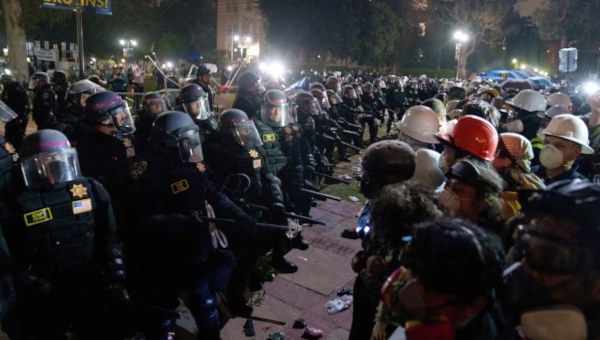
This is an education that produces moral blindness, ignorance, and reveals contempt for empowering ideas, critical thinking, and civil liberties. It is a war against history, memory, solidarity, and the dissolution of the social ties that bind us together in a set of shared values.45 As Donald Howard argues, educators and others cannot risk failing to speak and act against the current right-wing assaults, especially at a time when a range of democratic educations are under assault and “the very fabric of our democracy is frayed, if not unraveling. We cannot risk silence.”46 Silence in the face of an emerging fascist politics offers a warning of the danger to come and the lessons to be addressed.
Such attacks function as a massive disimagination machine and a tool of subjugation by enacting a pedagogy of obedience and repression. This type of education is about more than turning schools into indoctrination centers; it is about creating an educational system that normalizes fascist ideologies and denies critical modes of agency.47 This is nothing less than a resurgence of a poisonous neo-McCarthyism that threatens not only free speech and academic freedom but also the central principles of democracy itself.
The acts of civil disobedience currently taking place on campuses are imbibed with spirit of the 1960s Berkely Free Speech Movement. Then, as now, students are fighting for the right to be heard, to overturn acts of social injustice, and to bring to an end what Mario Savio, one of the leaders of the movement, called “the operation of the machine [that has become] so odious [that] you’ve got to put your bodies upon the gears and upon the wheels … upon the levers, upon …the apparatus, and you’ve got to make it stop! And you’ve got to indicate to the people who run it, to the people who own it, that unless you’re free, the machine will be prevented from working at all!”48 What the students protesters at Columbia, Yale, New York University, and other campuses throughout the U.S. are making clear is that power must be held accountable and that the plague of silence over the war on Palestinians has to be broken so as to inject the struggle for human rights back into the language of a politics built upon the values of equality, social justice, liberty, and human dignity. What young people are teaching the world today, heeding the words of the great abolitionist Frederick Douglass, is that freedom is an empty abstraction if people fail to act, and that “if there is no struggle, there is no progress.”49 What they are fighting for is not just a call to end the war against the Palestinian people, a war that is a moral litmus test of our time, but what it means to imagine and fight for a more just and better world.
Damn right! •
This article first published on the Counterpunch website.
Endnotes
- Vaclav Havel, Living in Truth, ed (Boston: Ma Faber and Faber, 1986), p. 26.
- G. M. Tamas, “On Post-Fascism,” Boston Review (June 1, 2000).
- Eddie S. Glaude Jr., “The Fantasy of a Lily-White America.” Time [April 15, 2024].
- Judith Butler’s various writings and books are brilliant on this issue. See, for instance, Judith Butler, The Force of Non-Violence (New York: Verso, 2024). Judith Butler, Precarious Life: The Powers of Mourning and Violence (London: Verso Press, 2004).
- Ruth Ben-Ghiat, “The Right’s War on Universities,” The New York Review of Books (October 15, 2020). See also her larger work on authoritarianism, Ruth Ben-Ghiat, Strongmen: Mussolini to the Present (New York: W. W. Norton, 2020).
- Ellen Schrecker, “Yes, These Bills Are the New McCarthyism,” Academe Blog (September 12, 2021).
- Ibid., Ellen Schrecker, “Yes, These Bills Are the New McCarthyism.”
- Ibid., Ruth Ben-Ghiat, “The Right’s War on Universities,” The New York Review of Books.
- Michael Abramowitz, “War’s Critics Abetting Terrorists, Cheney Says,” The Washington Post (September 10, 2006).
- I have taken up this issue in detail in Henry A. Girox “Democracy, Freedom, and Justice after September 11th: Rethinking the Role of Educators and the Politics of Schooling,” Teachers College Record 104:6 (September 2002), pp. 1138-1162.
- Pranshu Verma, “They criticized Israel. This Twitter account upended their lives,” The Washington Post (April 16, 2024).
- Pankaj Mishra, “The Shoah after Gaza,” London Review of Books (March 21, 2024).
- Frederic Lordon, “End of Innocence,” New Left Review [April 12, 2024].
- William I. Robinson, “Israel Has Formed a Task Force to Carry Out Covert Campaigns at US Universities,” Truthout (March 23, 2024).
- Melissa Chan and Phil Helsel, “108 arrested at pro-Palestinian protest at Columbia University,” NBC News (April 18, 2024).
- Al Jazeera Staff, “Columbia, NYU, Yale on the boil over Israel’s war on Gaza: What’s going on?” Al Jazeera (April 22, 2024).
- Moira Donegan, “Columbia University is colluding with the far-right in its attack on students,” The Guardian (April 19, 2023).
- Ari Paul, “The McCarthyist Attack on Gaza Protests Threatens Free Thought for All,” Fair (April 19, 2024).
- David Bell, “Elise Stefanik, Dean of the Faculty,” The Chronicle of Higher Education (April 22, 2024).
- Robert Kuttner, “Self-Destructive College Presidents,” The American Prospect (April 22, 2024).
- Ibid. Bell.
- I have taken the term “Puritan superego” from Edward W. Said, Culture and Imperialism (New York: Alfred A. Knopf, 1993), p.295.
- Martin Pengelly, “Stefanik criticized for support of Trump after push against campus antisemitism,” The Guardian (December 11, 2023).
- Mattthew Mpoke Bigg, “Netanyahu Calls U.S. Student Protests Antisemitic and Says They Must Be Quelled,” New York Times (April 24, 2024).
- Ibid. Mattthew Mpoke Bigg.
- Gov. Press Release, “Sanders Responds to Netanyahu’s Claim that Criticism of the Israeli Government’s Policies is Antisemitic,” Bernie Sanders U.S. Senator for Vermont (April 25, 2024).
- Ibid. Gov. Press Release.
- Ibid. Robinson.
- Ibid. Robinson.
- Arwa Mahdawi, “Will the ‘cancel culture’ crowd speak up about the silencing of Asna Tabassum? Don’t hold your breath,” The Guardian (April 17, 2024).
- Will Bunch, “Fear and loathing on America’s college campuses as free speech is disappearing,” The Philadelphia Inquirer.
- Troy Closson and Anna Betts. “Columbia Students Arrested Over Campus Rally May Face Other Consequences,” New York Times (April 20, 2024).
- Judd Legum, “Columbia University protests and the lessons of ‘Gym Crow’,” Popular Information (April 22, 2024).
- Troy Closson and Anna Betts, “Columbia Students Arrested Over Campus Rally May Face Other Consequences,” New York Times (April 23, 2024).
- Mohammad Jahjouh and Samy Magdy, “Israeli strikes on southern Gaza city of Rafah kill 22, mostly children, as US advances aid package,” Associated Press (April 21, 2024).
- Andre Damon, “Hundreds of bodies discovered in mass graves at Gaza’s Nasser Hospital,” Countercurrents (April 23, 2024).
- Press Release, “UN experts deeply concerned over ‘scholasticide’ in Gaza,” United Nations Human Rights (April 18, 2024). The full comment is worth quoting: “After six months of military assault, more than 5,479 students, 261 teachers and 95 university professors have been killed in Gaza, and over 7,819 students and 756 teachers have been injured – with numbers growing each day. At least 60 per cent of educational facilities, including 13 public libraries, have been damaged or destroyed and at least 625,000 students have no access to education. Another 195 heritage sites, 227 mosques and three churches have also been damaged or destroyed, including the Central Archives of Gaza, containing 150 years of history. Israa University, the last remaining university in Gaza was demolished by the Israeli military on 17 January 2024.”
- Will Bunch, “With the truth up for grabs, Columbia’s young journalists are getting the story,” The Philadelphia Inquirer (April 23, 2024).
- Ellen Schrecker, “Yes, These Bills Are the New McCarthyism,” Academe Blog [September 21, 2021].
- Henry A. Giroux, “Neoliberal Savagery and the Assault on Higher Education as a Democratic Public Sphere,” Café Dissensus (September 15, 2016).
- Henry A. Giroux and Anthony R. DiMaggio, Fascism on Trial: Education and the Possibility of Democracy (London: Bloomsbury, 2024).
- Eden McLean, “Fascism’s History Offers Lessons about Today’s Attacks on Education,” Scientific American (April 7, 2024). See also Henry A. Giroux and Anthony R. DiMaggio, Fascism on Trial: Education and the Possibility of Democracy (London: Bloomsbury, 2024).
- Judd Legum, “Columbia University protests and the lessons of ‘Gym Crow,” Popular Information (April 22, 2024).
- Cited in Judd Legum, “Columbia University protests and the lessons of ‘Gym Crow,” Popular Information (April 22, 2024).
- Alexander J. Means, Yuko Ida and Matthew Myers, “Teaching Beyond dread,” Review of Education, Pedagogy, and Cultural Studies, [February 8, 2024].
- Donald W. Harward, “Risking Silence,” Inside Higher Ed, [August 28, 2018].
- Henry A. Giroux and Anthony R. DiMaggio, Fascism on Trial: Education and the Possibility of Democracy (London: Bloomsbury, 2024).
- Mario Savio, “Sit-In Address on the Steps of Sprout Hall,” delivered December 2, 1964, at the University of California. American Rhetoric: Top 100 Speeches.
- Frederick Douglass, West India Emancipation, speech delivered at Canandaigua, New York, August 4, 1857, in Philip S. Foner, Ed., The Life and Writings of Frederick Douglass, vol. 2 (New York: International, 1950), p. 437.



